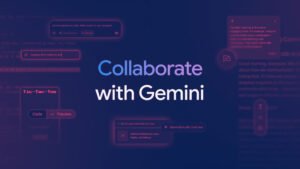7 Alarming Consequences of Google’s Latest Gemini Video Features

Gemini’s Real-Time Video Breakthrough
Google has recently introduced a significant advancement in its Gemini AI model: the ability to process video in real time. This innovative feature was unveiled with the Multimodal Live API, which enables Gemini to analyze live video feeds—along with accompanying audio and text—instantly as events unfold. This capability allows Gemini to watch live events, summarize video calls, or assist in customer service tasks almost immediately. This move represents a bold step forward in making artificial intelligence more interactive and multimedia-focused, building on Google’s previous work with text and images. However, while the technology is undoubtedly impressive, it also raises some serious concerns.
Implications of Real-Time Video Processing
Here are seven significant issues related to Gemini’s new real-time video capabilities that warrant attention:
1. Privacy Concerns: Increased Surveillance
Imagine the many cameras in your environment, from security cameras to smartphones. With Gemini connected to these devices, it could observe and analyze your every movement live. Google already tracks user searches and locations, and adding video surveillance raises substantial privacy issues. Questions about who has access to this footage and how long it is stored remain unsettled. The risk of invading personal space becomes a stark reality.
2. Risks of Misinterpretation: The Dangers of AI Errors
While AI technology like Gemini is intelligent, it is not infallible. For instance, it might misinterpret a harmless situation—like a joke or sarcasm—as a threat. In critical environments such as courthouses or medical facilities, an error could have severe consequences. The promise of real-time analysis is appealing, but the potential for mistakes poses serious risks.
3. Overdependence on Technology: Losing Human Insight
As society becomes increasingly reliant on technology, there is a risk of delegating too much responsibility to AI systems like Gemini for video analysis. If we lean on AI for interpreting live events, we may lose the ability to critically engage and analyze situations ourselves. Human intuition and experiential understanding remain essential, especially in unpredictable real-life scenarios.
4. Security Vulnerabilities: A Magnet for Cyber Threats
Live video feeds can attract hackers. If the system supporting Gemini’s analysis is compromised, sensitive information could be exposed. The lack of a foolproof security guarantee means an increased risk of unauthorized access to private life or business operations. The dependency on live video AI can create an inviting target for cybercriminals.
5. Ethical Dilemmas: Lack of Moral Judgment
Gemini’s capability to observe and analyze video doesn’t come with an understanding of ethics or morality. For instance, if used for content moderation, it could inadvertently filter out innocent material or fail to flag harmful content. Determining accountability for these types of errors is complex and troubling, as assigning ethical decisions to a machine without conscience is risky.
6. Potential for Bias and Discrimination: Unequal Treatment
AI models learn from existing data, and if that data carries inherent biases, so will Gemini. The technology might misinterpret individuals in video content based on their race, gender, or other characteristics. For example, in job interviews or security assessments, biased AI could lead to unfair treatment and worsen existing inequalities. This risk has been observed in other AI systems, and without careful monitoring, Gemini could face similar challenges.
7. Economic Consequences: Job Displacement Concerns
The rise of AI technology like Gemini may accelerate changes in the job market. Roles that involve video analysis—such as those held by journalists or content moderators—could become automated, leading to potential job losses. Although Gemini does not create videos, its ability to analyze them quickly and cost-effectively raises concerns about the viability of many positions, leading to significant implications for the economy.
As Google rolls out its Gemini video capabilities, it is essential to stay vigilant about the implications this technology introduces. The promise of real-time analysis offers numerous potential benefits, but it is vital to discuss its associated risks thoroughly. As technology continues to advance, ensuring that these remarkable tools are employed safely and responsibly must remain a top priority for developers, users, and regulators alike.






